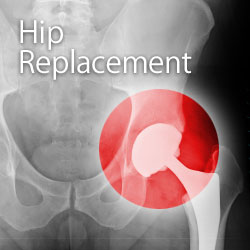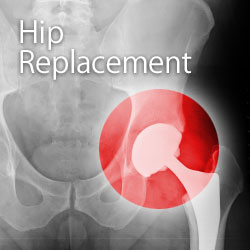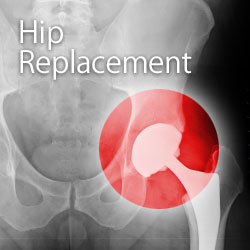 National implant registries exist for one selfless purpose: to protect the welfare of the public. True enough, the implant registries established in the United Kingdom and in Australia have indeed lived up to this kind of expectation, although it took years to notice such troubling incidences. The ASR implants manufactured by DePuy Orthopaedics have been found to be causing an exceptionally increasing number of revision hip procedures. It was later revealed that the failure rate of these metal-on-metal hip implants was at 13%, and had the potential to affect 1 in every 8 recipients. Because the implant registries were able to observe this alarming incidence, the creation of implant registries in the United States is ongoing. Some people may not know of this, but a law firm is actually leaving a misleading trail, deceiving enough to bamboozle the victims into their lair. They pretended to be a concerned government entity, named as the ‘National Hip Recall Registry’, and paid a certain company to launch a database. The information provided by potential clients to the database was then passed on the law firm. Those affected by the recall, including DePuy recipients, should be careful in disclosing information. This is clearly an unethical way to promote law and order, and it most certainly will not earn the public’s trust. How can a person’s rights be defended if, before an action is even made, they were already violated? For everyone’s information, only two recognized implant registries exist in the United States, named the American Joint Replacement Registry, or the AJRR, and the National Orthopaedic Outcome Registry, or the NOOR. These registries truly and legally exist for the good of everyone concerned. You would not want to be misled, especially if you have been through a lot already with the DePuy hip replacement recall. You may find it helpful to consult a good and competent hip recall lawyer. In that way, you can be guided accordingly as far as your legal options are concerned.
This video outlines the steps you should take if you discover your hip replacement has been recalled.
 93,000 people have purchased hip implants from DePuy Orthopaedics, namely the ASR XL Acetabular System and the ASR Hip Resurfacing System. The victims have all felt the symptoms of a malfunctioning implant—extreme pain, localized weakness, tissue swelling, metal sensitivity, and many more. All these prompted the victims to file a lawsuit against DePuy. With product liability cases, medical practitioners, such as physicians, are normally left out. However, a doctor is now facing charges for co-developing the recalled hip implants from DePuy. Recently, a hip replacement patient pressed charges against his surgeon, Dr. Thomas Schmalzried, a Southern California-based orthopedist who made contributions in the production of ASR devices. Months before, it was revealed that the hip implants have a 13% chance of failing, so that 1 in every 8 DePuy implant recipients will get affected. This statistical figure necessitates the need for a second hip replacement, or the so-called revision surgery, where the patient goes under the knife once again to take out the defective device. As if this is not the worst thing that could happen—the truth is, not all revision surgeries are 100% successful, so there might be a possibility that some patients may have to undergo a third hip replacement procedure. In as much as DePuy was aware of the defects of their ASR devices, Dr. Schmalzried may have known the same thing as well. What makes the case a very strong one against the surgeon is due to the fact that he did not disclose to his patient his affiliation with DePuy. To add more disbelief to the issue, the doctor received millions of royalty amounts from the company at an estimated $10 million. Not even doctors can be trusted with the DePuy recall, but there are still a lot of credible ones out there. Your priority, after all, she be your health. After that, you should think about filing a case against DePuy. Ask your hip recall lawyer about it.
 After talks that the United States is planning to establish its own registry, it has finally become a reality. In fact, implant registries in the United Kingdom and Australia were quite effective in noticing the increasing incidence of revision surgeries among DePuy implant recipients. The National Hip Recall Registry has just been established. Although it is not manned by any hip manufacturer or government agency, its objectives include: the creation of a database by patients and hip manufacturers; the provision of automated means to inform patients product recalls or warnings released by manufacturers and the FDA, respectively; the gathering of anonymous statistics of complications resulting from a particular hip prosthesis; and the provision of automated means to update hip surgery patients regarding issues related to a certain hip implant. On one hand, the American Academy of Orthopaedic Surgeons is also the brains behind a privately funded program named the American Joint Replacement Registry (AJRR). This is a pilot program to track the basic medical data of recipients in 15 different hospitals. These details will serve hip manufacturers and doctors. On the other hand, the newly established National Hip Recall Registry is operated to serve patients—minus the bias of surgeons and hip implant manufacturers. With all the furious DePuy hip implant recipients around the world, the creation of the National Hip Recall Registry is, at least, a positive action with regards to the issues surrounding the DePuy hip recall. Hip replacement surgeries with defective implants, not to mention the thousands of lawsuits filed, can finally be controlled without compromising the privacy of thousands of patients. If you are a recipient of any hip implant, then you are advised to register now. If you are a victim of a defective DePuy hip implant, then you should press charges against DePuy to claim compensation. Credits to: Creation of the National Hip Recall Registry. Depuy Hip Replacement Patients Urged to Register
 In the United States, the Food and Drug Administration released a report last October 2010 concerning DePuy Orthopaedics with the issue of manufacturing defective metal-on-metal hip replacements. The FDA report explains the scope of the DePuy hip recall on its metal hip implants. The ASL XL Acetabular System and the ASL Hip Resurfacing System are the subjects of close scrutiny now. The FDA report divides the defective hip implants into two series, namely the ASR 100 and the ASR 300. The ASR 100 series involves 15 models created for hip cup diameters from 44mm to 70mm, while the ASR 300 series specifies the remaining 14 models with the same range of diameters. According to the FDA, DePuy is still evaluating data from registries, published news and literature, clinical tests and research reports. These make up the entirety of the post-market surveillance of the company. They also received new findings from tests indicating that the ASR XL Monoblock Metal-on-Metal (MoM) was correlated with a higher tendency of revision surgeries. Studies also reveal that the ASR devices have a 12% failure rate. DePuy then sent out a Field Safety Notice to surgeons, reiterating the need to position the implant correctly to achieve optimum functionality. The report also explains that MoM monoblock cups, and their consequent loosening, cause infection, inflammation, pain, fracture, metal sensitivity and many more complications for the recipients. However, metallosis, which is probably the most dangerous complication, was not mentioned. This is described as the increased cobalt and chromium levels in the blood at toxic levels, enough to predispose the patient to serious and irreversible heart problems and nervous system damage. In response to the DePuy hip recall, the FDA might have acted a bit late. Nevertheless, it is not too late for you to act on your own cause. You deserve to claim compensatory damages from a defective ASR device. Hire a hip recall lawyer so you can be helped out in filing a lawsuit against the company.
|




 RSS Feed
RSS Feed